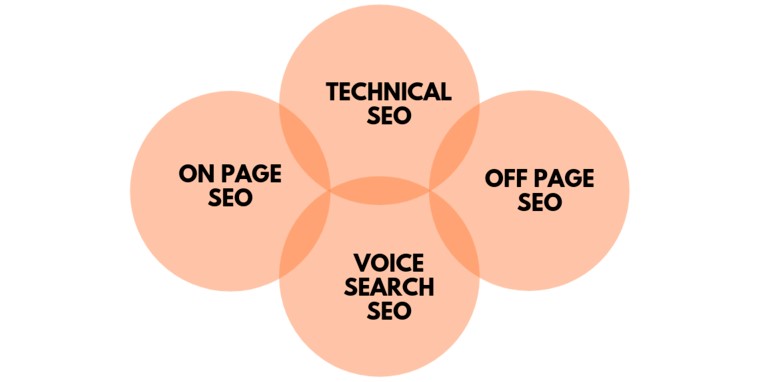How to Choose the Right Keywords for Your Plumbing Business
In today’s digital age, establishing an online presence is crucial for any business, including plumbing services. To stand out from the competition and attract potential customers, your plumbing business needs to master the art of SEO (Search Engine Optimization). A fundamental aspect of SEO is selecting the right keywords to target. In this guide, we will explore the process of choosing the right keywords for your plumbing business and how it can enhance your online visibility and customer acquisition.
Understanding Your Plumbing Business
Before delving into keyword research, it’s imperative to have a deep understanding of your plumbing business. Start by defining your services. Are you primarily involved in residential plumbing, commercial plumbing, or both? Do you specialize in specific services such as emergency repairs, pipe installations, or sewer line cleaning? Knowing your core services will help you target keywords that align with your offerings.
Identifying your target audience is the next crucial step. Consider the demographics, location, and preferences of your potential customers. Are you catering to homeowners, property managers, or businesses? Understanding your audience will help you create content and choose keywords that resonate with them.
Additionally, researching your competitors can provide valuable insights. Identify who your main competitors are in the plumbing industry and analyze their online presence. Which keywords are they targeting? How successful are their SEO efforts? This analysis can help you discover opportunities and gaps in your own keyword strategy.
Keyword Research Tools
Keyword research services are essential to successful SEO services. These insights provide valuable data and insights to guide your keyword selection. Some popular keyword research tools include Google Keyword Planner, SEMrush, Ahrefs, and Moz Keyword Explorer. These tools can help you identify relevant keywords, assess their search volume, and evaluate competition levels.
Brainstorming Relevant Keywords
To begin with SEO keyword research, generate a list of seed keywords related to your plumbing business. These are basic keywords that describe your services and offerings. For instance, “plumbing services,” “emergency plumbing,” or “pipe repair” could be potential seed keywords.
Expand your keyword list using keyword research tools. Input your seed keywords into these tools, and they will provide you with a list of related keywords and their associated metrics. Pay attention to long-tail keywords, which are longer and more specific phrases that potential customers might use to search for plumbing services. Long-tail keywords can be valuable as they often have less competition and can target a more specific audience.
Analyzing Keyword Metrics
Keyword metrics play a crucial role in the keyword selection process. Here are some key metrics to consider:
Search Volume
This metric indicates how often a keyword is searched for on search engines. Higher search volume keywords can bring more traffic but may also have higher competition.
Competition Level
Assess the competition for each keyword. High competition keywords may be more challenging to rank for, while low-competition keywords could offer a better opportunity to secure a top position in search results.
Keyword Relevance
Ensure that the selected keywords are directly related to your plumbing services. Irrelevant keywords can lead to wasted effort and resources.
Local Search Trends
For plumbing businesses, local SEO is crucial. Consider the search trends in your specific area and incorporate local keywords into your strategy.
Competitive Analysis
To gain an edge in keyword selection, it’s essential to analyze the keywords used by your competitors. Identify the top players in the plumbing industry in your region and examine their online presence. What keywords are they targeting in their content and on their websites?
By assessing your competitors’ keyword strategies, you can identify gaps and opportunities. Look for keywords that they might have overlooked or those where they have lower rankings. These gaps can be your entry points to capture valuable search traffic.
Local SEO Keywords
For plumbing businesses, local SEO keywords are a game-changer for your digital marketing. People often search for plumbing services in their immediate vicinity. Incorporating location-specific keywords, such as “plumbing services in Toronto” or “Toronto plumbing experts,” can help you attract local customers.
Utilize tools like Google My Business and local SEO keyword research services to discover location-specific keywords relevant to your plumbing business. Ensure that your website and content are optimized for local searches to enhance your visibility in the local market.
Prioritizing Keywords
With a comprehensive list of keywords at your disposal, it’s time to prioritize them for your SEO strategy. Organize your keywords based on relevance, search volume, and competition level. Consider the buyer’s journey as well. Some keywords may target users in the early research phase, while others may target those ready to make a purchase.
It’s crucial to strike a balance between high-competition and low-competition keywords. While high-competition keywords may bring more traffic, they can be challenging to rank for. Low-competition keywords, on the other hand, offer a higher chance of ranking well and attracting relevant traffic.
Keyword Testing and Validation
To ensure the effectiveness of your selected keywords, consider running PPC (Pay-Per-Click) campaigns using platforms like Google Ads. This allows you to test how well your chosen keywords perform in terms of generating traffic and conversions. Monitor the performance of these keywords and adjust your strategy based on the data you gather.
Content Optimization
Once you have identified your target keywords, it’s time to create SEO-friendly content. Incorporate your chosen keywords naturally into your website content, blog posts, and other marketing materials. Avoid keyword stuffing, which can harm your SEO efforts. Instead, focus on providing valuable and informative content that resonates with your audience.
Tracking and Reporting
Implement analytics tools like Google Analytics to track the performance of your keywords. Monitor keyword rankings, website traffic, and conversion rates. Regularly analyze the data to identify areas for improvement in your SEO strategy. Adjust your keyword targeting and content creation based on the insights you gather.
Regular Updates and Adaptations
The world of SEO is dynamic and constantly evolving. Stay updated with industry developments, search engine algorithm changes, and emerging trends in plumbing services. Regularly revisit your keyword strategy and make adjustments as needed to remain competitive and relevant in the online landscape.
In conclusion, choosing the right keywords for your plumbing business is a critical aspect of your SEO strategy. It can significantly impact your online visibility and customer acquisition efforts. By understanding your business, conducting thorough keyword research, and staying adaptable, you can optimize your plumbing SEO keywords for success.
For professional assistance with Pennsylvania SEO services, contact SEO Plumber Pennsylvania at (215) 770-6442. Our team of experts is here to help you achieve top rankings and attract more customers to your plumbing business. Don’t miss out on the opportunity to dominate the online market in Pennsylvania.
FAQs:
1. What is the importance of keyword research for my plumbing business?
Keyword research is essential for your plumbing business as it helps you identify the terms potential customers are using to find your services online. By targeting the right keywords, you can improve your online visibility, attract more traffic, and ultimately increase customer acquisition.
2. How can I identify the keywords that are relevant to my plumbing services?
To identify relevant keywords, start by defining your core plumbing services. Then, use keyword research tools to generate a list of related keywords. Consider your target audience and location-specific keywords for local SEO.
3. What are long-tail keywords, and why are they important for my plumbing SEO strategy?
Long-tail keywords are longer and more specific keyword phrases. They are important because they often have lower competition and can attract highly targeted traffic. Long-tail keywords are particularly valuable for niche plumbing services and localized targeting.
4. How can I assess the competition level of the keywords I want to target?
Keyword research tools provide metrics on competition levels. Look for keywords with a lower competition score, indicating that they are less competitive to rank for. However, balance this with search volume to ensure they are worth targeting.
5. What role does local SEO play in my plumbing business’s keyword strategy?
Local SEO is crucial for plumbing businesses as people often search for local services. Incorporating location-specific keywords, optimizing your Google My Business listing, and ensuring your website is optimized for local searches can help you attract local customers.
More to Read
-
 SEO Sinks and Rises: Elevating Your Plumbing Business Online
SEO Sinks and Rises: Elevating Your Plumbing Business Online -
 Turning Clicks into Customers: Plumbing the Depths of Digital Marketing
Turning Clicks into Customers: Plumbing the Depths of Digital Marketing -
 Web Wrenching: A Guide to SEO Mastery for Plumbers
Web Wrenching: A Guide to SEO Mastery for Plumbers -
 Beyond the Plunger: SEO and Digital Marketing for Modern Plumbers
Beyond the Plunger: SEO and Digital Marketing for Modern Plumbers -
 Pipe Perfection: Crafting a SEO Strategy for Plumbers
Pipe Perfection: Crafting a SEO Strategy for Plumbers -
 Digital Drain Surge: SEO Tactics to Skyrocket Your Plumbing Business
Digital Drain Surge: SEO Tactics to Skyrocket Your Plumbing Business -
 Tightening the SEO Faucet: Strategies for Plumbing Success Online
Tightening the SEO Faucet: Strategies for Plumbing Success Online -
 The Digital Toolbox for Plumbers: SEO and Marketing Strategies
The Digital Toolbox for Plumbers: SEO and Marketing Strategies -
 SEO Plunge: Transforming Your Plumbing Business Online
SEO Plunge: Transforming Your Plumbing Business Online -
 Pipelines to Profit: Navigating Digital Marketing for Plumbers
Pipelines to Profit: Navigating Digital Marketing for Plumbers

